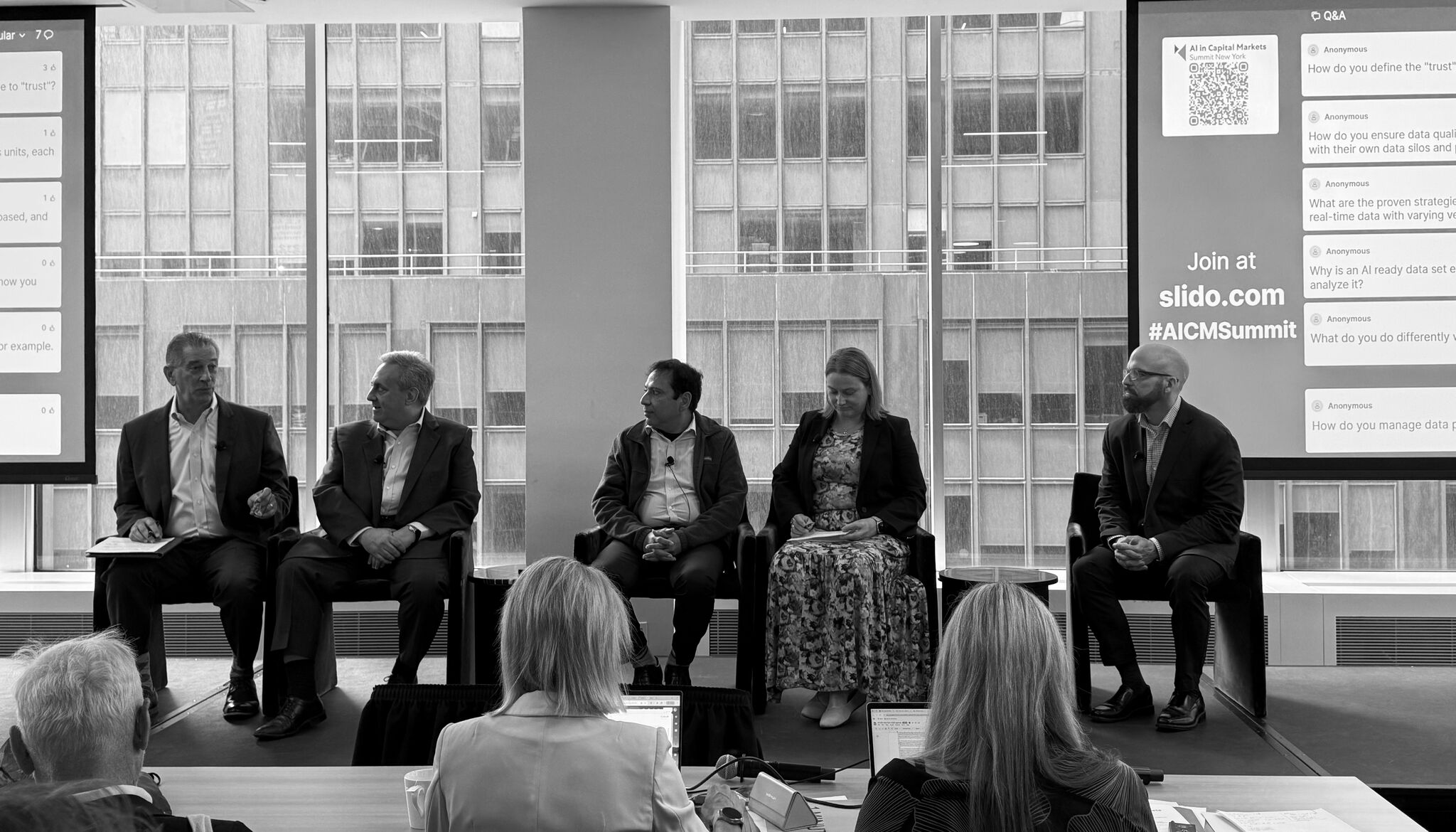By Mick Hittesdorf, Senior Cloud Architect at OneMarketData
I recently had the opportunity to participate in a panel discussion at the AI in Capital Markets Summit in New York, where we dove deep into the realities of applying AI to capital markets - not hype but real, in-the-trenches stories about what works now, what’s emerging and what is still aspirational (at best).
In 2025, it feels like it's the year we're getting serious about AI. Not just generating text or images, but building intelligent systems that can automate, amplify, and improve workflows - making people more productive, more creative, and more impactful with AI - not replacing them.
So what does this mean for those of us building systems in capital markets? Let me share some thoughts from the panel discussion and the conversations that followed.
THE DATA PROBLEM
Here's something everyone on the panel agreed on: garbage in, garbage out. And capital markets data is particularly unforgiving. It's not just about having tick data—though that's obviously essential. You need the full context: order flow dynamics, venue rules, market microstructure, reference data, corporate actions, multiple symbologies - the works.
This is where I get excited about what we're building at OneTick.
We've spent years solving the hard problems of market data infrastructure—normalizing across asset classes, handling corporate actions, and maintaining nanosecond precision across time zones. The kind of foundational work that makes AI driven capitdal markets solutions possible, because without clean, contextualized data, your AI projects will stumble and fall, leading to unrealized expectations, missed milestones, and disappointed stakeholders.
The Exponentiation Model
The most compelling applications of AI aren't about replacing portfolio managers, traders or analysts—they're about making them exponentially, almost superhumanly, more effective.
AI excels at distilling mountains of complex information into more digestible chunks, but it still takes human intuition to understand and interpret the big, often muddy picture. Mixed economic signals, rapidly shifting market sentiment, regulatory nuance, and sometimes irrational counterparty behavior require human judgment to untangle and contextualize. However, when AI is employed to do what it does best and humans do what they do best, the combination can lead to powerful, unprecedented results.
At OneTick, we're focused on this exponentiation model: AI helps users, especially less technical users, to get to insights faster (such as througfh Python and SQL code generation and summarizing our technical documentation), so domain experts can focus more on deriving the kind of insights from market data that lead to new alpha-generating strategies, reduced risk, or improved regulatory compliance.
The Implementation Reality
While many firms are still figuring out basic data governance, let alone deploying autonomous trading agents, the path forward is not rocket science: start with basics, prove value, build trust, expand scope. So where to start?
The firms that will succeed are those that invest in data and the underlying data platform infrastructure first. You can't build a smart house on a shaky foundation, and you can't build intelligent trading and regulatory systems on fragmented, inconsistent data.
But with high quality market data, including comprehensive reference data, plus a modern market data platform to collect, manage, and distribute that data, the essential elements are in place to successfully execute on a capital markets AI strategy.
LOOKING AHEAD
Every few years, capital markets go through a technology hype cycle. Remember when "big data" was going to solve everything? Or buying your pet food on the Internet was considered revolutionary? Some of these cycles deliver real value, others fade into footnotes.
AI is showing signs of being real, but, like many other sensationalized technologies preceding it, the reality is that the game is won by those who put in the hard work to lay the foundations for future success.
The early adopters aren't chasing shiny objects—they're solving concrete data problems around data ingestion, data quality, metadata, data governance and the associated technical problems of building, scaling and operating a modern data platform, which often means understanding Cloud native architectures, the pros and cons of open data formats, and how to simultaneously support real-time and historical data use cases.
WHERE DO WE GO FROM HERE?
Thanks to everyone who participated in the panel and the hallway conversations afterward. These kinds of discussions—where practitioners share real experiences rather than vendor pitches—are invaluable for understanding where the industry is actually heading.
If you're working on similar challenges or have thoughts on AI in capital markets, I'd love to hear from you. You can find me on LinkedIn.
And as always, if you're building systems that need rock-solid market data infrastructure to power your AI initiatives, well, you know where to find us – request a demo today.
— Mick Hittesdorf
OneTick Cloud Product Architect at OneMarketData | OneTick




